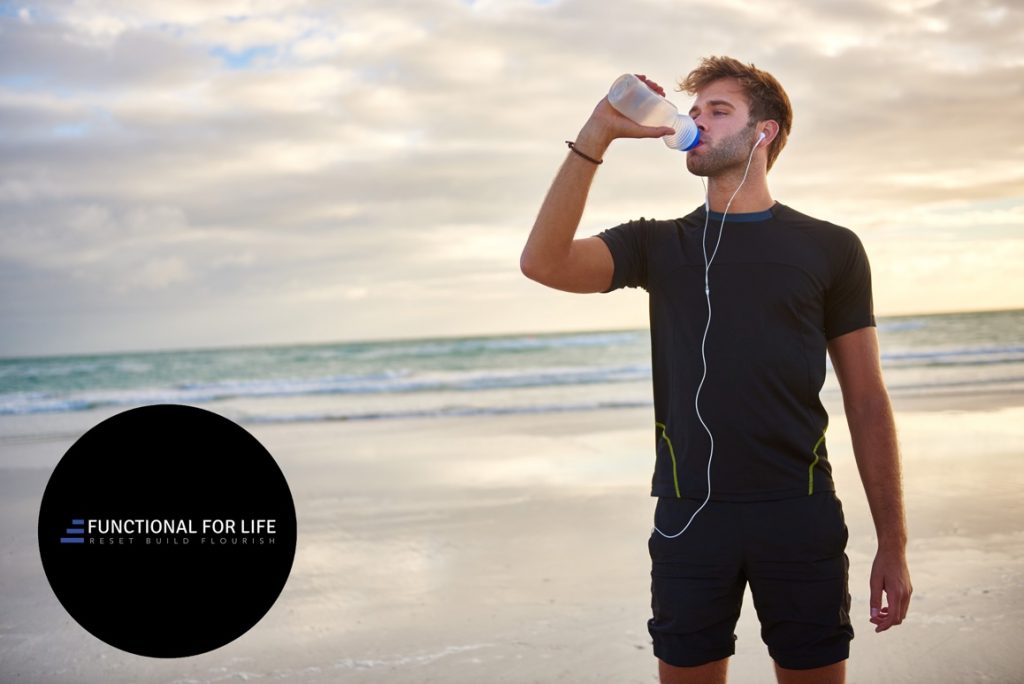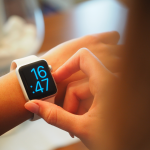Hydration- Why is it essential?
Water, as we all know is one of the most essential things a human being needs to survive. You can last up to a month without food, without water you have under a week! Research says 71 percent of the earth’s surface is water-covered, with the oceans holding approximately 96 percent of all earths’ water. Water can also be found in the air as water vapour, running in rivers and lakes, in the frozen north and south poles in the form of icecaps and glaciers. Water is even beneath our feet in the ground as soil moisture and held within rock in aquifers
To stay healthy and function optimally, humans must maintain a constant water balance, which means that water losses must be made up for by water intake. The average human body is made up of anywhere from 50 to 65% water. When we are babies this rises to 75-78% water makeup. According to H.H. Mitchell, Journal of Biological Chemistry 158, ‘the brain and heart are composed of 73% water, and the lungs are about 83% water. The skin contains 64% water, muscles and kidneys are 79%’ and even the bones are watery: 31%.
Water can come in the form of food and drink and can be lost as sweat and urine. We even lose water every time we exhale. On a cold day we see this water in the air as it condenses and forms a vapour. In the fitness industry hydration takes on even more relevance as the intensity of physical movement causes the body to sweat profusely as a method of controlling the body’s core temperature.
Today we are going to explore the effects of dehydration and proper hydration on a human beings physiology, we will also look how to best prepare so you never reach a dehydrated state.
Effects of dehydration:
Dehydration can be defined as the state your body goes into when you use or lose more fluids than you replace. Normal bodily operations are restricted as the body slowly shuts down to preserves energy for only the most vital functions. Signs of dehydration include:
1. Inability urinate or passing dark yellow urine.
2. Dry skin.
3. Feeling dizzy and disorientated.
4. Rapid heartbeat.
5. Rapid breathing.
6. Sleepiness, lack of energy, confusion or irritability.
7. Losing consciousness.
Effects of proper hydration:
As we have discovered water is an incredibly essential resource for human beings. Below are just a few of the primary functions water preforms to help keep us healthy and strong.
1. Water provides nutrients to every cell and acts as building material for the repair or creation of cells.
2. Water constantly regulates our internal body temperature by sweating and respiration.
3. The carbohydrates, proteins, minerals and vitamins that our bodies use as fuel are metabolized and transported by water in the bloodstream.
4. Water is used to expel waste from the body as urine.
5. Water acts as a shock absorber for the spine and brain.
6. Water forms saliva.
7. Water lubricates joints and can be found within fascia and muscles.
Tips for always maintaining hydration:
1. Don’t wait until you feel thirsty to drink. Make sure you’re steadily drinking water all day whether you’re thirsty or not.
2. Make sure water is within easy reach day and night. Keep a bottle by your bed, by your desk or other places you spend considerable time at.
3. Have a minimum of 8 and as many as 12 cups of water a day. If temperatures are high or you have an illness drink more. Generally, males need 3 litres and females 2 litres daily.
4. Avoid dehydrating substances such as caffeine and alcohol, both dehydrate the body extremely quickly
5. Try to replace sports drinks and fruit juice with water, these can help but don’t come close to the power of water when it comes to hydration.
6. Eat a balanced diet that includes fruits and vegetables. They contain large amounts of water, salt, and vitamins and can help prevent dehydration.
7. If you have trouble remembering to drink water, drink on a schedule. For example, drink water when you wake up, at breakfast, lunch, and dinner, and when you go to bed. Or, drink a small glass of water at the beginning of each hour.
8. When you’re feeling hungry, drink water. Thirst is often confused with hunger. True hunger will not be satisfied by drinking water.
9. Use an app to track your water intake, it can help with staying motivated and tracking your progress
10. Invest in a water filter, filtered water can taste significantly better than tap or bottled water and is better for you.
As we have discovered becoming hydrated due to excessive exercise or even not drinking enough water during the day has many harmful effects. Essential bodily functions are hampered and our energy and brainpower is depleted immediately. With this in mind drink plenty of water in the morning after rising and continue to sip during the day. Hopefully you can use some of the tips provided in this blog to keep healthy and hydrated! As always for more tips on improving your health and fitness, check out our blog at Functional For Life Mobile Personal Training. Thanks for reading and bottoms up!






